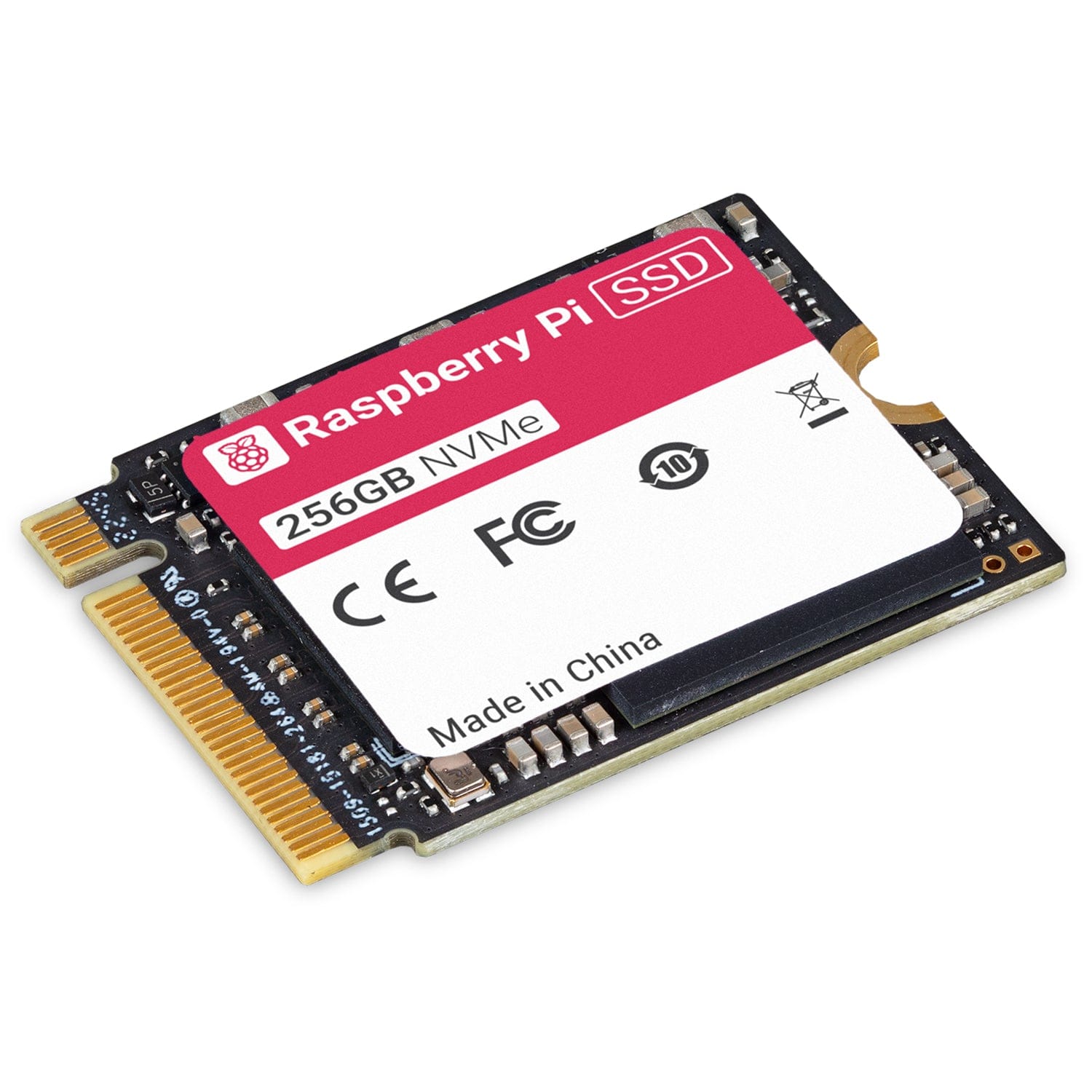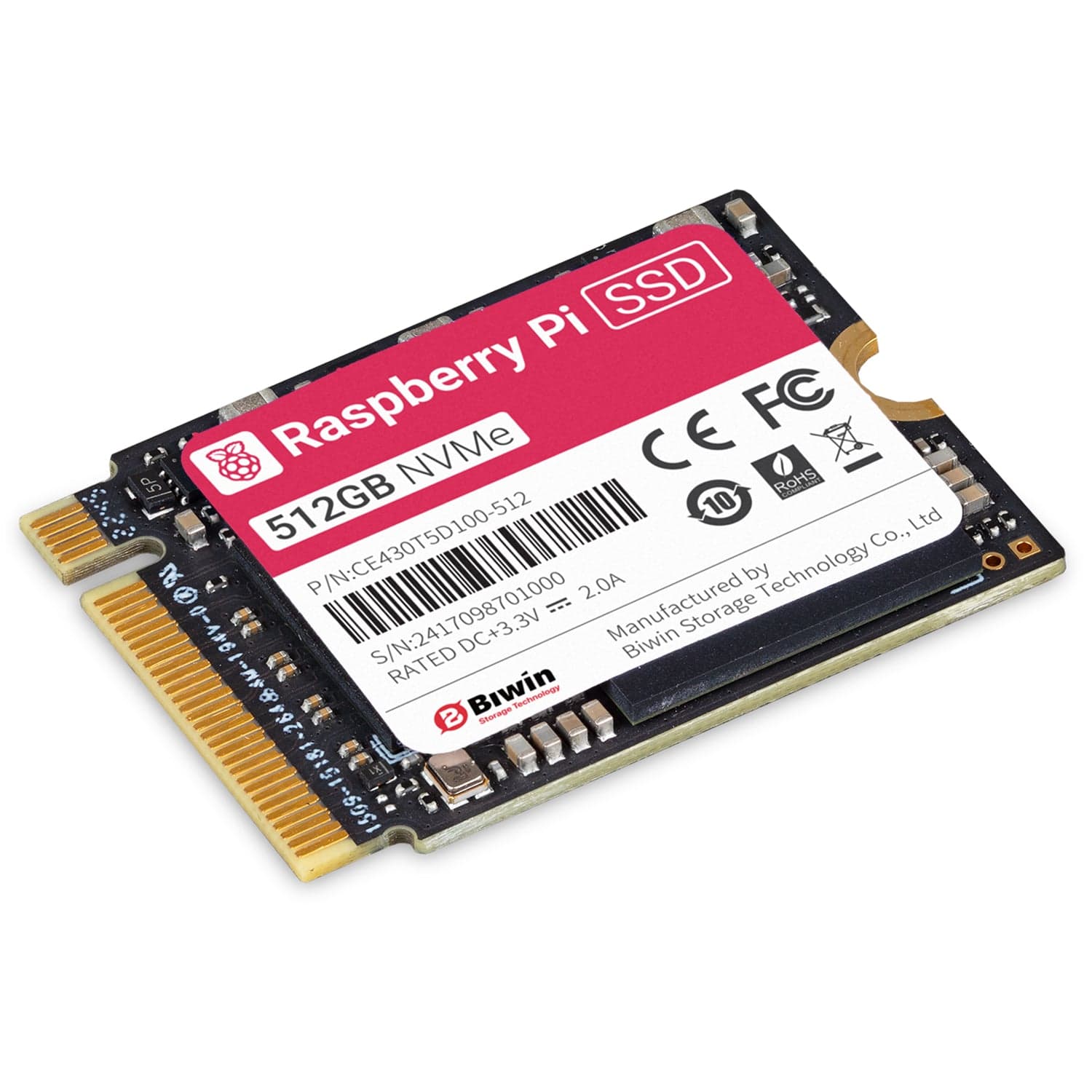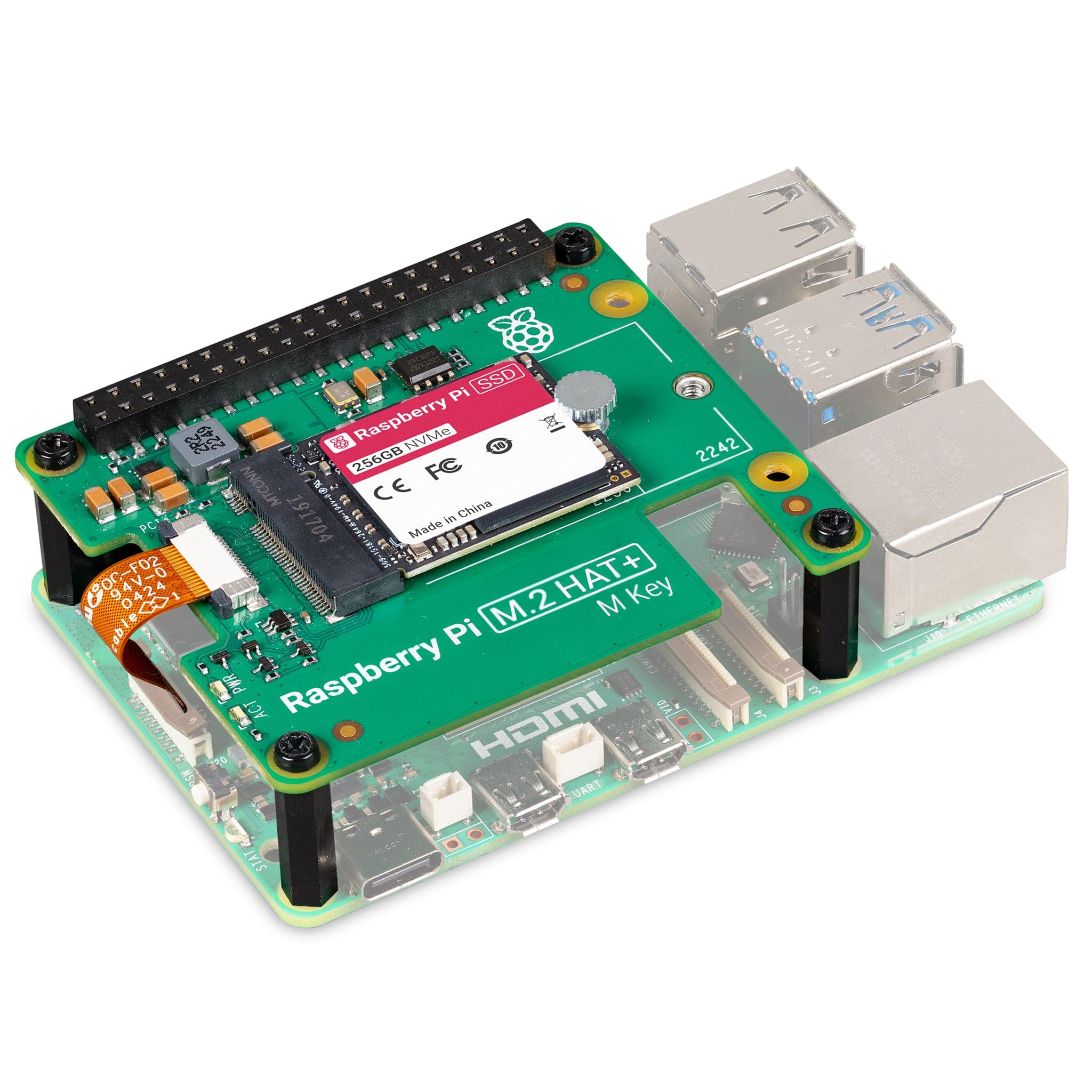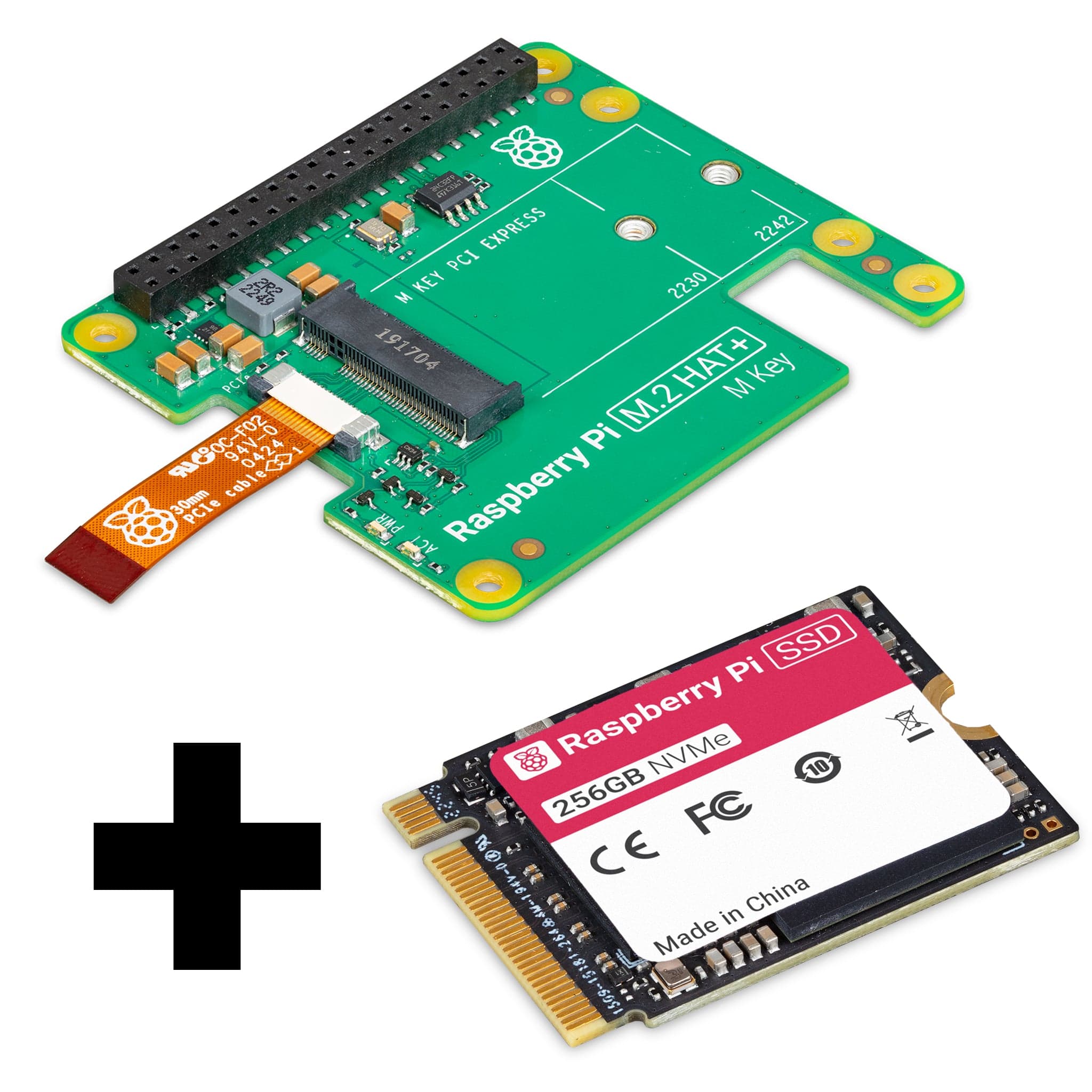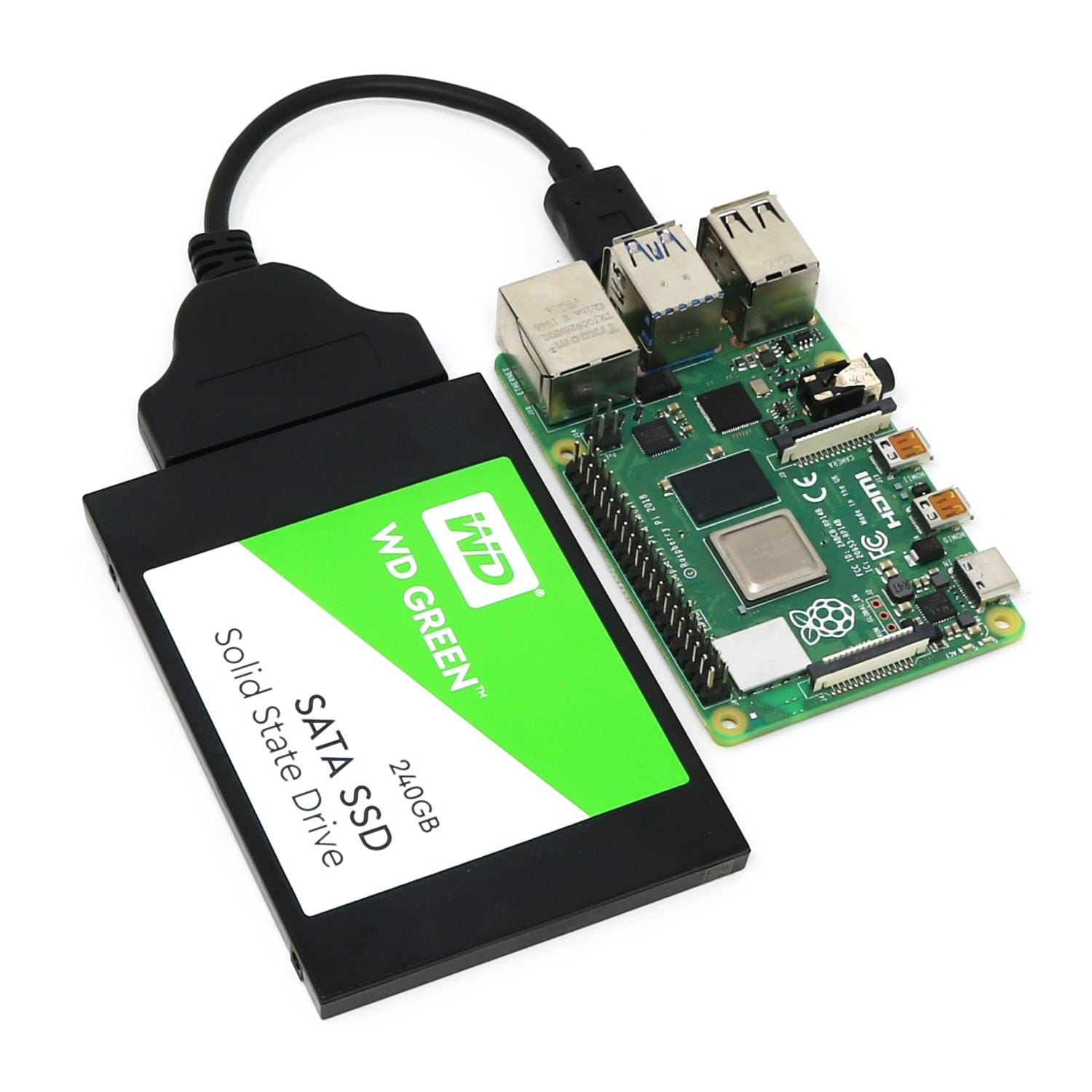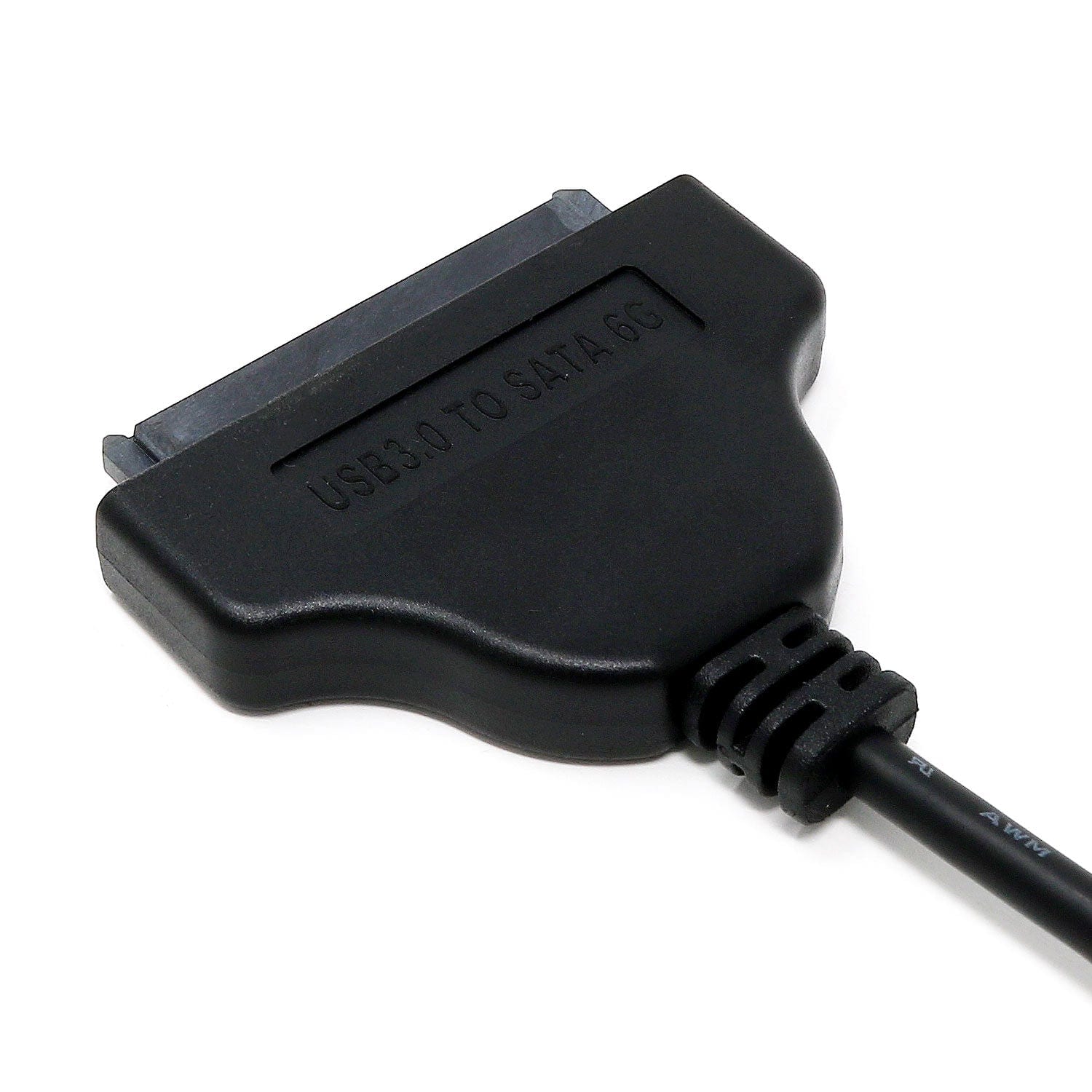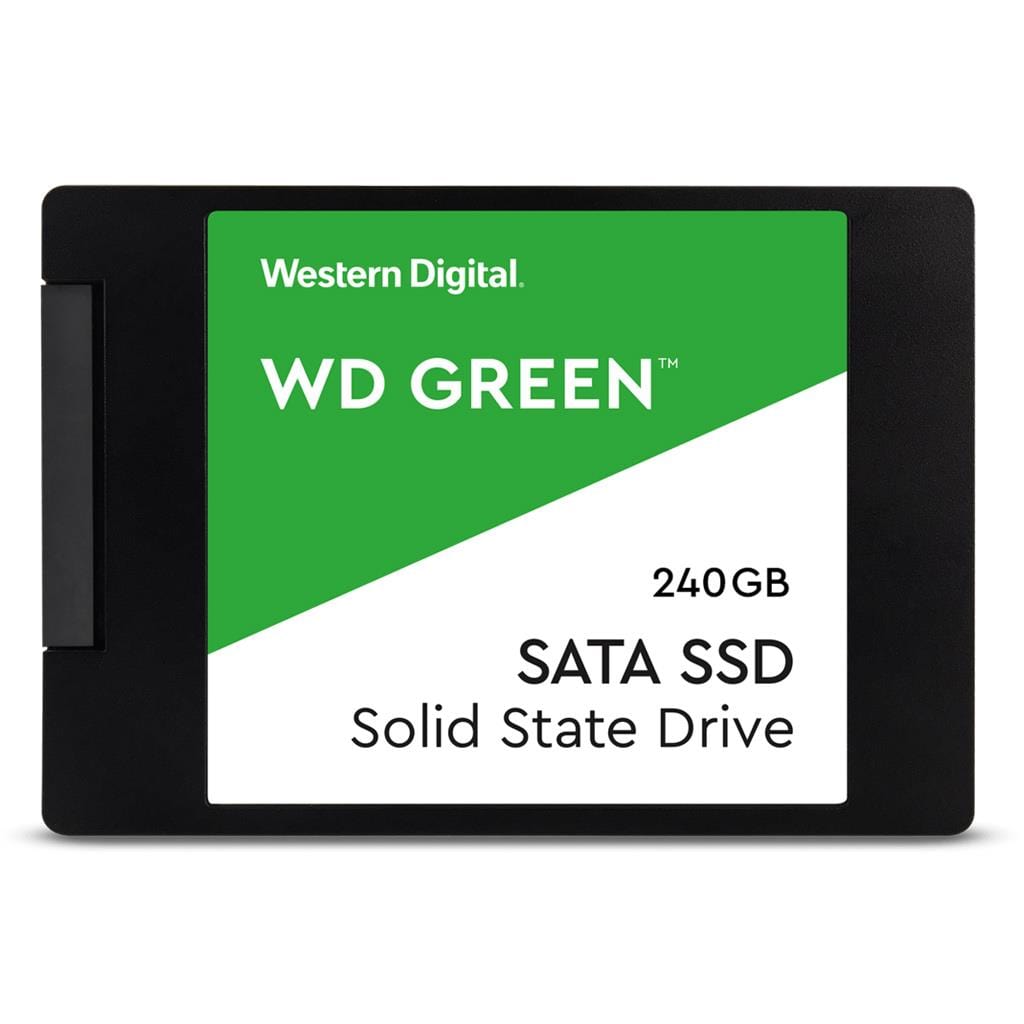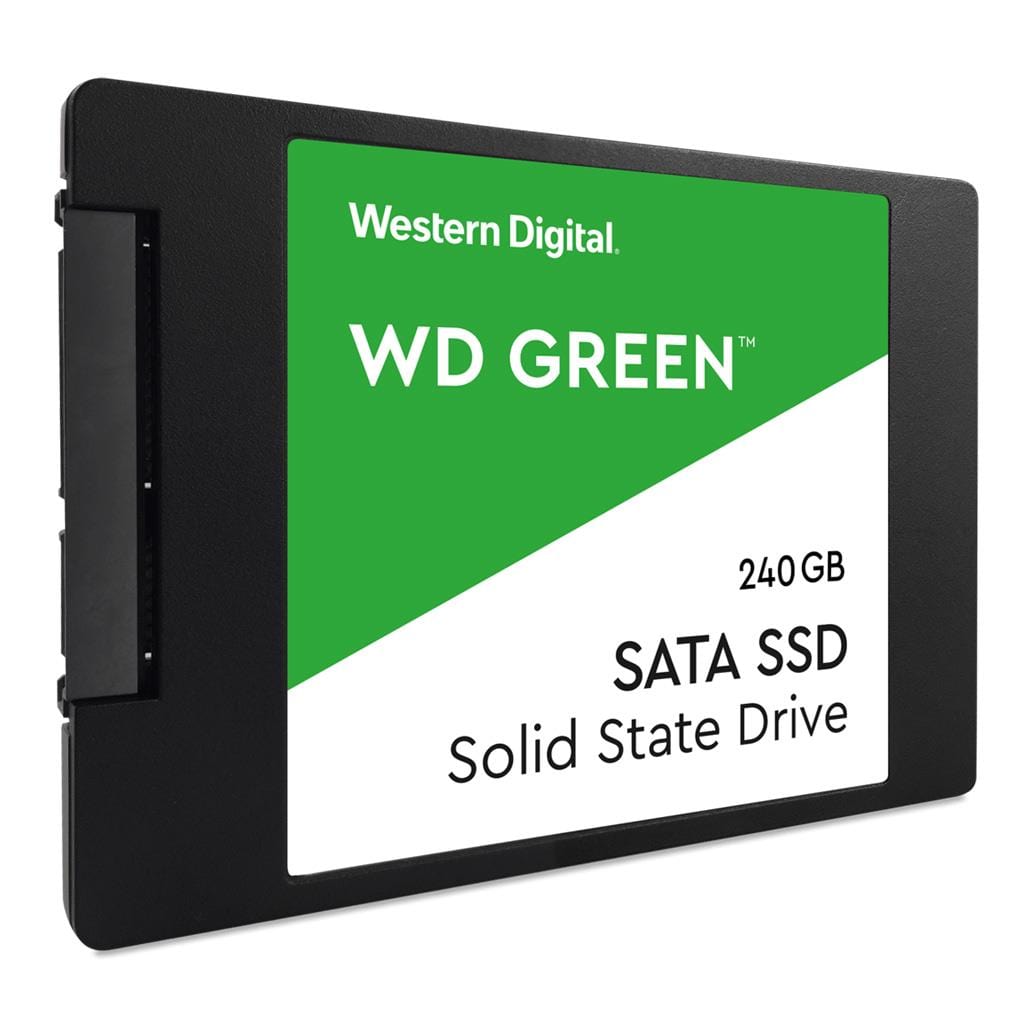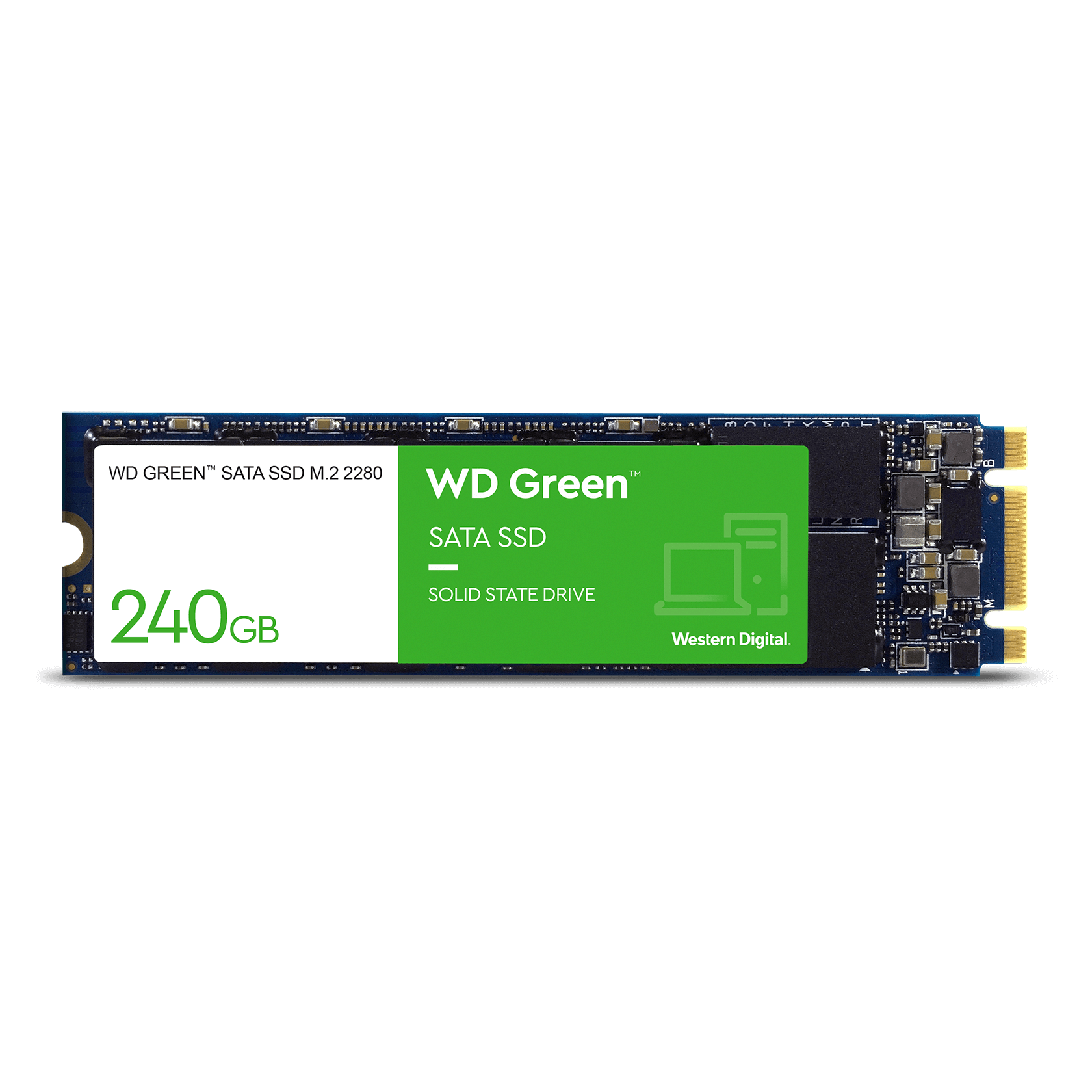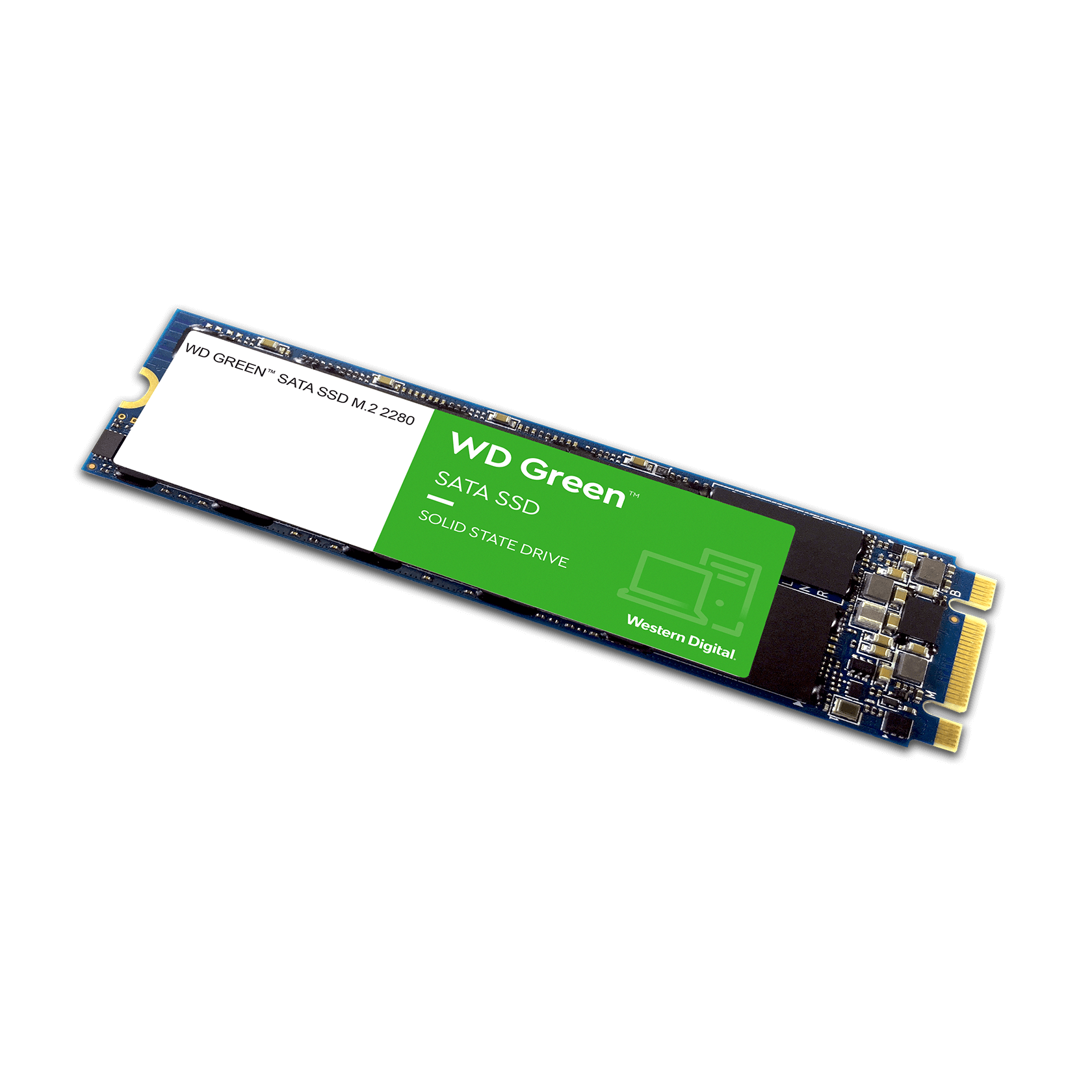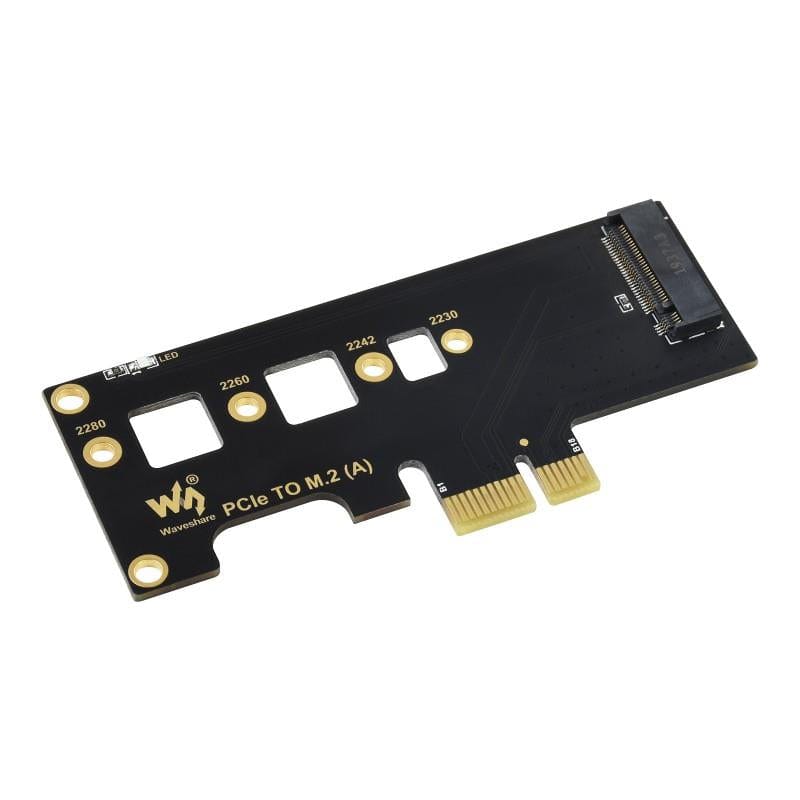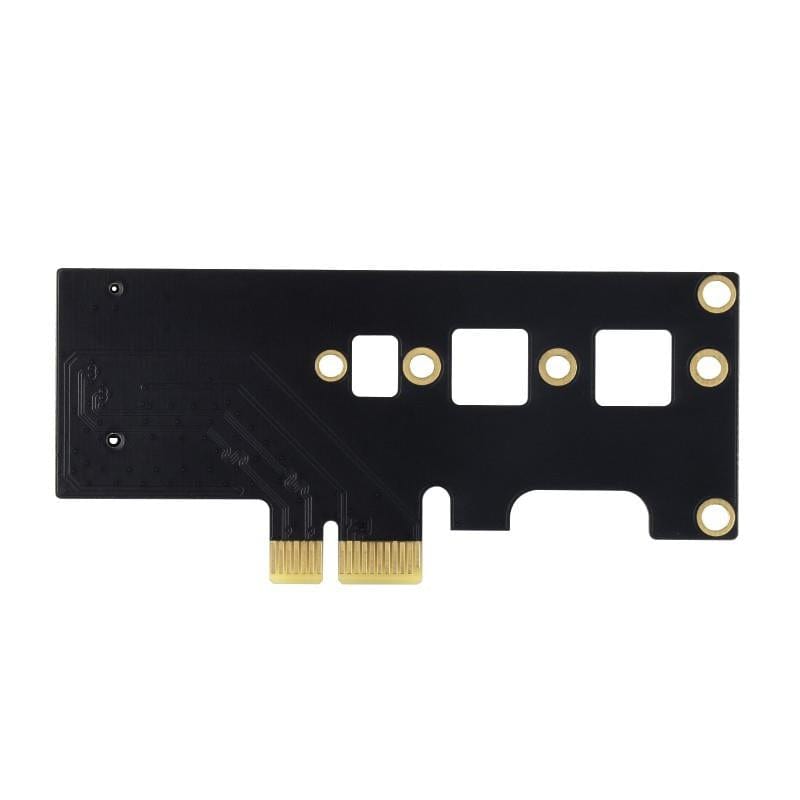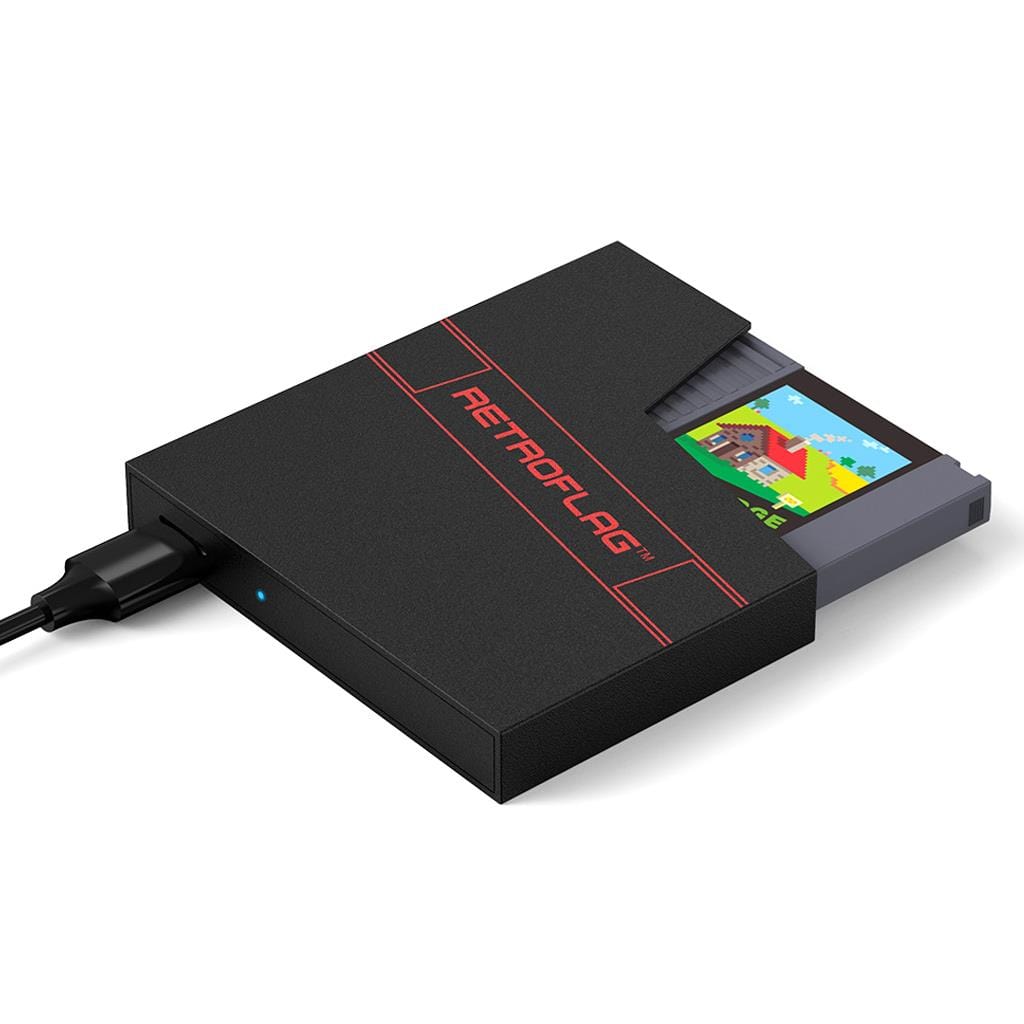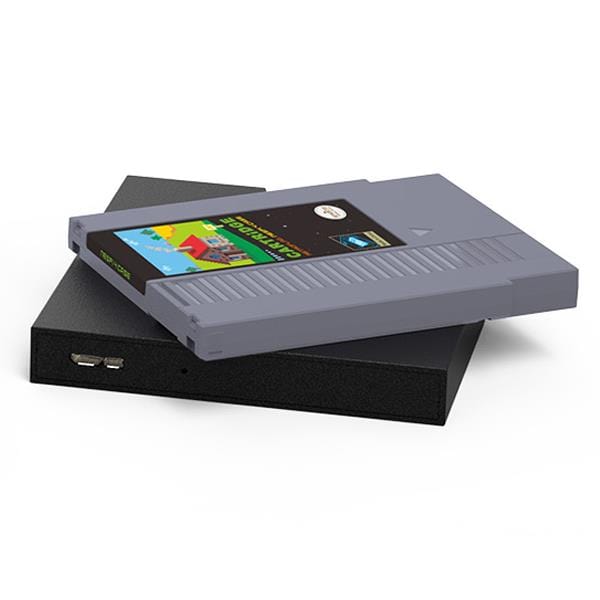Filters
Raspberry Pi SSD Storage
When the Raspberry Pi 4 introduced fast USB 3.0 ports to the Raspberry Pi, SSD storage became a popular option amongst Raspberry Pi users. With our simple USB SSD adapter cables, makers were adding fast SSD storage to their projects for both their boot drive and general storage.
With the PCIe interface now found on the Raspberry Pi 5, SSD storage is as popular as ever, with even faster speeds made possible by using NVMe M.2 drives via PCIe, utilising SSD HATs such as the Raspberry Pi M.2 HAT+.

